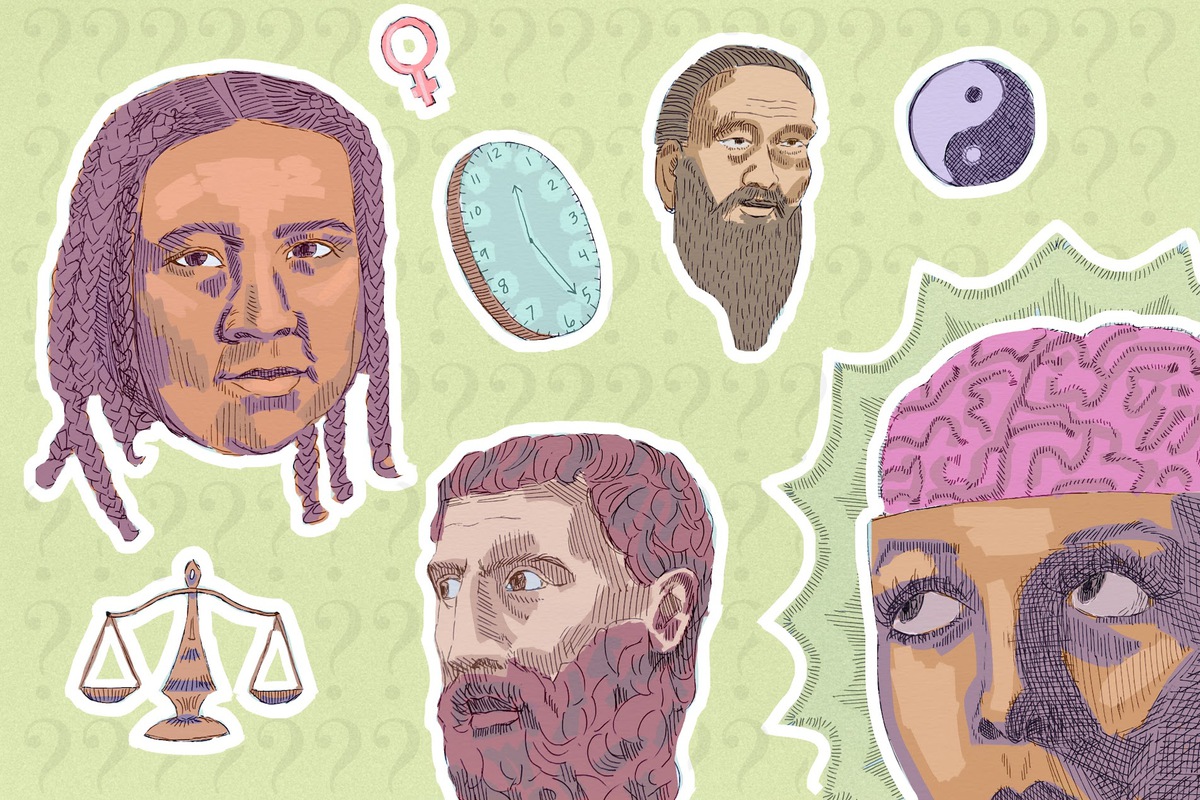Is buying a cell phone moral? At first, you may think that because this purchase is widespread, nothing is wrong with it. But is it truly that simple? Since producing cell phones can involve child labor, is it really moral, and is someone morally responsible if they are unaware of child labor? These are all questions philosophers try to answer.
Philosophy attempts to deepen our understanding of our reality and knowledge, and students should consider taking a class to reap its many benefits.
Philosophy makes topics we take for granted, such as daily social media use and meat consumption, more meaningful. It can also enhance your future career and educational opportunities.
“For many people, the ability to use critical reasoning skills to do well on the LSAT for law school is appealing,” said philosophy professor Robbie Kubala. “Philosophers are well-known to do better than other academic majors … Philosophy makes one a more informed consumer of news media, voter and reader of cultural messages around us.”
Data has proven that philosophy majors tend to score higher on standardized tests like the GRE and MCAT.
“Philosophy is excellent training for problem-solving, logical reasoning, critical reasoning and other professional skills,” said philosophy professor Karl Schafer. “It’s actually preparation for law school, management, consulting, business, public policy and all sorts of fields.”
Yet philosophy also involves the discussion of sensitive topics that some could find off-putting.
“We cannot ignore things such as racism,” said government freshman Arien Stehling, who is taking a philosophy class on contemporary moral problems. “I think it’s better to talk about it than to act like it doesn’t exist. Have new discussions and embrace different political views because you can’t stay in a little box, thinking one way.”
Students considering philosophy classes may wonder how they can handle the unique academic characteristics of the major. However, philosophy creates an environment where people can freely express their arguments without personal attacks or shouting matches. Non-majors can overcome their initial confusion through the welcoming atmosphere.
“Our education system may make us see just multiple choice answers,” said philosophy doctoral student Anugya Sood. “There’s one answer to things. But the important aspect of philosophy is that you can learn how to think about questions in a unique, concrete method.”
Even current philosophers can relate to many students who are unsure about the philosophy major.
“I didn’t start studying philosophy until I had already finished my undergrad,” said philosophy professor James Gillard. “I was studying for a master’s in theology, actually. While doing so, I noticed that theologians constantly cited philosophers wherever the argument got difficult or tricky.”
Gillard’s experience reaffirms how philosophy can strengthen our creation and understanding of arguments.
While philosophy is a broad field, it is worth considering because of the professional and career benefits it offers and its ability to open students’ minds. Undergrads should consider taking at least one philosophy class since many students who enjoyed it unintentionally ended up on a new path.
Pham is a government, history, and French freshman from Garland, Texas.













